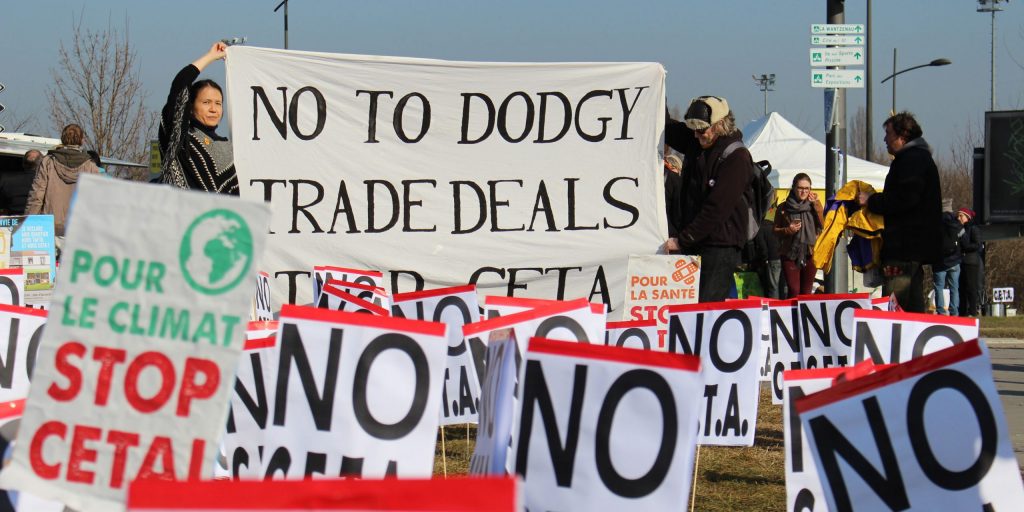The controversial CETA trade deal between Canada and the European Union has largely come into force today amid sharp criticism from Friends of the Earth Europe. The early implementation – known as ‘provisional application’ – comes even though most national parliaments have not yet begun to debate or vote on the deal. [1]
Friends of the Earth Europe is calling for a major overhaul of EU trade policy to make it more transparent and democratic, and to ensure trade deals contribute to tackling defining challenges of our time such as rising inequalities and runaway climate change rather than exacerbating them.
Fabian Flues, trade campaigner at Friends of the Earth Europe said, “CETA is off to a false start. Not only does the provisional application underline its undemocratic nature but the agreement itself remains unpopular in many countries, where parliaments are still to ratify it. We call on parliamentarians across Europe to take their responsibility to scrutinise the agreement seriously and reject this damaging trade deal.”
#CETA trade deal provisionally applied from today – despite undemocratic nature and unpopularity#StopCETAhttps://t.co/BIHcfPi3Um pic.twitter.com/EZXIA1tyLz
— Friends of the Earth (@foeeurope) September 21, 2017
The CETA trade agreement – along with the now stalled TTIP agreement with the US – has sparked unprecedented protest across Europe and brings with it significant risks for European citizens in a range of areas, such as consumer protection, food and safety standards, energy policies and climate change measures.
Exempted from the provisional application of the agreement are highly controversial investment tribunals. These will only become effective after ratification by all national parliaments. The Investment Court System would allow foreign investors to sue governments for enacting legitimate public policy.
Two weeks ago, the Belgian government asked the European Court of Justice to examine the compatibility of the trade agreement with the European Treaties. [2] Legal experts allege that the investment tribunal included in CETA threatens the powers of Europe’s courts. [3] A negative opinion from the Court would throw the entire ratification process into doubt.
Fabian Flues continued, “CETA is an outdated agreement that gives VIP rights to corporations while failing to address defining challenges of our time such as rising inequalities and runaway climate change. The controversy around CETA should be a wake-up call to the EU to rethink its trade policy so that it contributes to a sustainable and equitable future and puts the rights of citizens above those of foreign investors.”
—
[1] The national ratification is outstanding in 24 out of the 28 EU member states. Only the Latvian, Croatian, Portuguese and Danish parliaments have ratified CETA so far.







